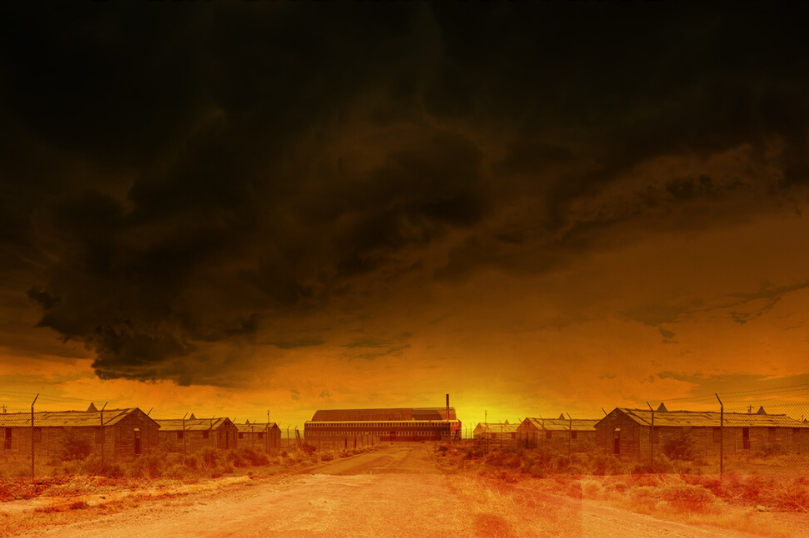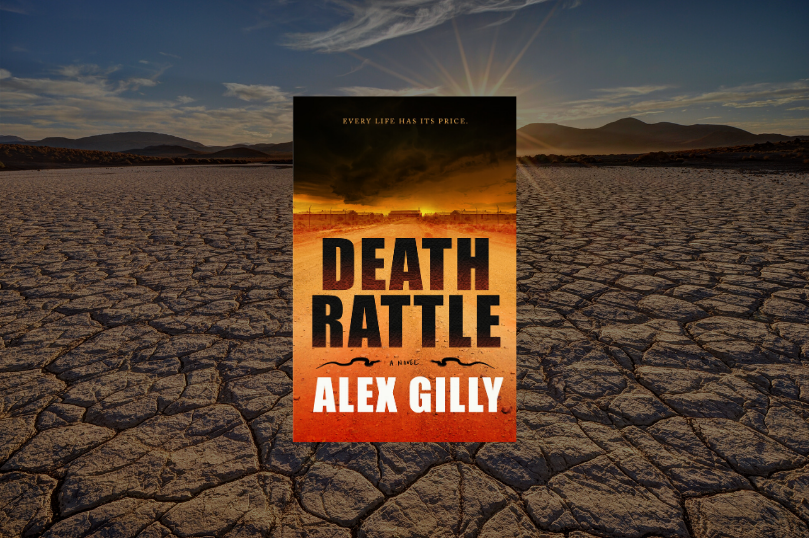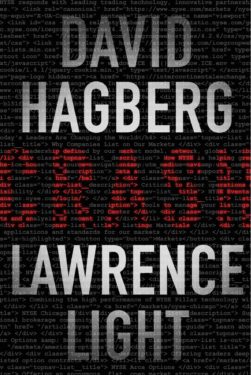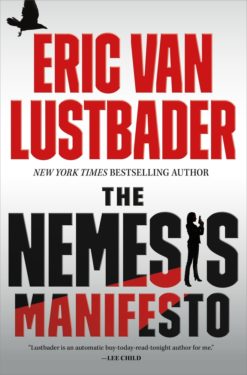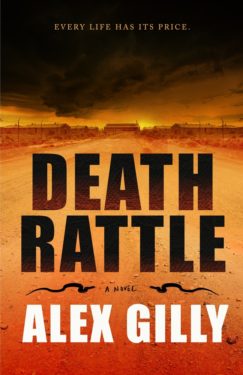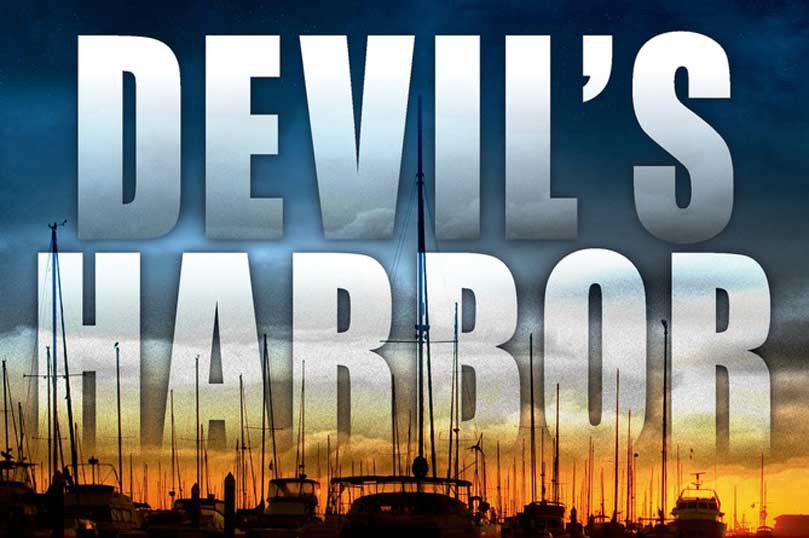opens in a new window opens in a new window
opens in a new window opens in a new window
opens in a new window opens in a new window
opens in a new window opens in a new window
opens in a new window
opens in a new window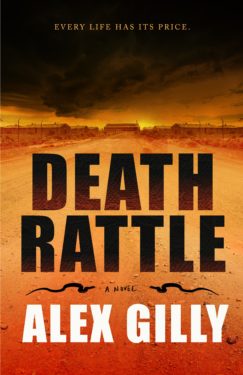
Alex Gilly’s opens in a new windowDeath Rattle is a riveting thriller for fans of Don Winslow’s The Border.
A death in a migrant detention center leads officer Nick Finn and his wife, human-rights lawyer Mona Jimenez, to investigate the prison’s account of what happened.
Trouble is, the company that runs the prison is on the verge of signing a billion-dollar procurement contract with Homeland Security. And there are people in this world for whom a billion dollars is worth a whole lot more than one human life. Or even three.
opens in a new windowDeath Rattle will be available on July 14, 2020. Please enjoy the following excerpt.
Prologue
With the swell and the way the wind was gusting, Marine Interdiction Agent Vernon Gomez was struggling to keep the spotlight locked on the panga. One second the little open boat was inside the circle of light, the next it had slid back into the surrounding murk. Agent Nick Finn stood under the Interceptor’s canopy, glancing from the panga to the rain clutter on the radar screen, thinking, a night like this, it was a miracle they’d found it at all.
The panga, as usual, was packed to the gunwales. Gomez’s spotlight clung to it long enough for Finn to glimpse a woman clutching a child and two men bailing water. He also had time to see that some genius had hacksawed away the forward flotation compartment to make room for more passengers. He took one look at how low the boat was in the water and picked up the radio mic.
“Long Beach, this is Interceptor One, over.”
A voice crackled back. Finn spoke up against the rain pelting the hardtop. He said, “I’m looking at a suspected illegal entry vessel, twenty-foot-long open boat, taking on water. Looks like her engine’s out. I need a chopper and a utility out here to take everybody off.”
“Interceptor One, what’s your position?” said the voice.
Finn gave their position, some ten miles southwest of Newport Beach. Finn was vessel commander, so this was his operation. He turned to tell the newbie, Marine Interdiction Agent Antonio Figueroa, to do a head count of the people aboard the panga. But Figueroa was bent over the rail, throwing up. So Finn turned instead to Marine Interdiction Agent Amanda Chinchilla. “Ask them how many people they’ve got aboard,” he said.
Chinchilla’s voice boomed through the bullhorn. The squall lulled, and Finn heard a man at the rear of the sinking boat shout back, “Veintidós!”
Even Finn, no linguist, could understand that. He relayed the information back to Long Beach before Chinchilla had a chance to translate. He asked how long till his backup got there. “Stand by,” said the voice on the radio. Finn looked at Chinchilla and Gomez. By their solemn faces, he figured they were thinking the same thing he was. What he was thinking was, the panga was going to sink long before the chopper arrived. Finn decided on a course of action, then let five seconds pass, counting them out in his head.
No better idea presented itself.
He hung up the mic.
“Here’s what we’ll do,” he said. “I’ll bring us round their weather side. Gomez, you keep them lit up. Chinchilla, you tell them we want the children first, then the women. Let’s go.”
Gomez and Chinchilla nodded and moved to their posts. No one paid any attention to Figueroa, still throwing up. Finn maneuvered the Interceptor between the panga and the swell. The squall picked up again and blasted rain across his face. Cold water had somehow slunk under his jacket and now found new courses to follow each time he moved. He felt it trickling toward his socks.
Sheltered behind the much larger vessel, the panga righted a little. But it was still dangerously low in the water—by the glare of Gomez’s spotlight, Finn could see maybe a foot and a half of freeboard above the waterline.
Another thing that worried him: the confusion on the radar screen. They were in the middle of the southern fairway into Long Beach, one of the busiest shipping channels in the world, and he couldn’t see a thing. A couple of years back, a three-hundred-foot cargo ship had crushed a twenty-five-foot fishing boat right here in the channel, and the cargo crew hadn’t even noticed. Finn fiddled with the clutter control. Nothing. He’d switched on every light the Interceptor had, figuring if he couldn’t see, at least he could make himself as visible as possible. If he’d had a Christmas tree in the bow, he’d have lit that, too.
His socks squished when he stepped over to Figueroa, still bent over the leeward rail. He grabbed the newbie by the back of the collar, hauled him over to the windward side, and pointed out at the wet darkness.
“I don’t care if you puke all over yourself. You’re on lookout duty, you hear? You see anything at all out there, you shout it out. Anything at all, even if you’re not sure it’s an actual thing, you yell out. Got it?”
Figueroa groaned and moved his head in a way that might’ve been a nod, but which might not have been.
Finn shook him, hard.
“Show me you understand what you gotta do.”
“Look out. Got it,” came the weak reply.
Finn let go of the young man’s collar and went back to supervise the rescue operation.
Chinchilla stepped over to him. “They say they got four children!” she said, shouting against the sound of the rain.
“Bring them up!” he said at the same volume.
She went back to the rail and started shouting in Spanish at the guy standing by the dead outboard at the panga’s stern, the guy whom Finn surmised was in charge of the whole catastrophe. Finn remained at his station with one hand on the wheel and the other on the throttle, ready to respond if Gomez, who had a clearer view of the sinking boat, hand-signaled to him to back off. The Interceptor was forty feet long, twice the size of the panga. A gust in the wind or freak wave could easily thrust them over the top of it.
He glanced over to the other rail. Figueroa was still upright, throwing up into the wind. He turned back to see Chinchilla bend over the side, haul up a small child, and set her down on the forward deck. Within two minutes, she’d hauled three children aboard. Then something went wrong; Finn heard yelling before a grown man appeared over the side. Finn recognized him as the guy from the back of the boat.
He waved the guy over to him. The man stumbled across the shifting deck and through the rain and wind toward the cockpit. Finn grabbed him by the collar.
“I said women and children first,” he said, calling the guy the worst Mexican cussword that his wife, Mona, had taught him. He resisted the urge to throw the fellow over the side, but not the one to fling him down on the deck. He looked up. Chinchilla was shouting. Something was going on in the panga. Finn stepped over the pendejo and went to the rail. A young woman wearing an oversized white T-shirt and spandex leggings was trying to push a child up the ladder. The child had clasped her tiny hands to the ladder’s lowest rungs and wasn’t letting go. The other people in the panga were crowding around the ladder, yelling at her, unbalancing the open boat. Chinchilla was shouting at them to step back, but they weren’t listening. Their refusal to heed orders was the first sign of a panic that Finn knew could prove fatal. He jammed his knees under the Interceptor’s rail, leaned down as far as he could, got a hold on the girl’s forearms, and said, “I got you, sweetheart. You can let go,” in English. Two terrified eyes met his. Her tiny hands remained prized to the rungs. Then the young woman below said something to the kid in Spanish, her voice firm and reassuring, not panicky. The child said something that sounded like a prayer—Finn heard the word Dios—shut her eyes and let go of the ladder. Finn hauled her up over the side. He settled her against the rail with the other children, then bent over the side again, extending his arms to the young woman this time. Her long black hair was plastered to her face. She reached up and took hold of Finn’s forearms.
A wave shouldered its way between the two boats, separating them. Finn felt the woman’s arms yank out of his hands. She splashed into the strip of roiling water.
“Man overboard!” he screamed. He pointed and kept pointing at the spot where he’d seen the young woman go in. He felt the Interceptor backing away—Gomez making sure they didn’t run over the person in the water. Chinchilla had the spotlight now. She swept it back and forth over the foam.
No sign of the woman.
Finn knew, like every mariner, the first rule of man overboard is, keep it to one man overboard. You throw the man a life ring, a life vest, a line, anything; you never dive in after Him.
Finn ignored the rule. He had trained as a rescue swimmer with the navy’s Maritime Expeditionary Security Force. He unclipped his utility belt.
The moment he hit the water, his clothes became instantly heavy. He also got a shock from the cold: it was March, and the water temperature hadn’t broken sixty degrees. He kicked hard to get his head above the surface, and when he did, he heard the shriek of the wind, like an endless piece of paper being torn. Voices in Spanish and English screamed from both boats. The DHS seal on the Interceptor’s side—an eagle with an olive branch in one set of talons, arrows in the other—looked huge from the water’s surface. Waves surged over his head. He swallowed mouthfuls of seawater. Chinchilla was still sweeping the light over the spot where the young woman had gone under; he swam toward it and dived.
Beneath the surface, the spotlight’s muted shine penetrated three or four feet, and in this dimly lit sphere the sea’s dark shades shifted in sudden streaks like wet paint beneath an artist’s scraper; below that, it was entirely black.
At the very edge of the reach of light, he glimpsed a flash of white.
He took two big strokes and swept a hand in front of his face as though pushing aside a curtain; it brushed against something solid. He reached around the woman’s torso with one arm and with his free hand pressed the inflator trigger on his emergency vest. He burst through to the surface and into the howling wind.
An emergency-yellow flotation sling attached to a line hit the water next to Finn. He wrangled the woman into it, clipped her in, then tugged on the line. He watched her get lifted out of the water, hauled up, he imagined, by Chinchilla’s barbell-tooled arms. Someone on deck kept shining the spotlight down on him. By its light, he noticed dozens of twenty-dollar bills floating on the surface all around him. He swam for the ladder on the side of the Interceptor, grabbed the lowest rung, waited for the hull to roll toward him, kicked hard, and pulled himself out of the sea.
Gomez helped him over the side and kept holding him. Finn shrugged him off and made it clear he was all right. But his teeth were chattering, and he wrapped himself in the space blanket that Gomez handed him. He felt something sticking to his cheek. He peeled it off: a twenty-dollar bill.
He turned his attention to the girl supine on deck. Chinchilla was kneeling beside her, her ear to the young woman’s mouth, listening for breath. After a moment, she pinched the woman’s nose, covered her mouth with her own, and blew hard, her cheeks puffing; the marine interdiction agent pulled away, and the young woman puked; Chinchilla stuck two fingers into the woman’s mouth, scooped out vomit, then bellowed another lungful of air into her; the woman coughed, puked some more, opened her eyes. Her white T-shirt was hitched up above her belly button, revealing a money belt. Finn noticed that its zipper had split open.
Then he looked up and saw Figueroa with his back to the wind, staring at Chinchilla reviving the woman.
“Figueroa! Goddammit, keep your eyes outward!” he yelled.
The young man wheeled around. Finn grabbed the spotlight and scanned the nearby water until he found the panga. It had drifted away twenty feet and was even lower in the water now. Two guys were frantically bailing with buckets; everyone else was scooping with their hands. Finn calculated that there were still sixteen people aboard. Only the children, the young woman that he had rescued, and the captain were safely about the Interceptor. Without taking his eyes off the panga, Finn held up his open hand and yelled, “Gomez! Watch my signal! Another ten feet forward and to starboard . . . Hold!”
On the command Hold! he clenched his fist. The Interceptor drifted alongside the panga, closing the gap. Chinchilla joined Finn at the rail. Finn said, “Tell them if they crowd the ladder, they’ll capsize.”
Chinchilla turned to the people below and fired off a series of commands. He was relieved to see that there was no rush for the ladder. The migrants came up one by one, moving with orderly haste, shuffling around to rebalance the panga whenever a person stepped off. As each person came over, Finn handed them each a space blanket, then directed them where to sit on the foredeck, distributing the weight. He noticed the young woman he’d pulled out of the water curled up under a silver sheet, next to the child she’d helped out of the panga. They were both looking at him gratefully. He unclenched his jaw a little. The operation was almost over.
Right then came a scream from the dark side of the boat. Everyone turned to the windward rail. Looming out of the night, high as mountain, was the bow of a container ship.
Finn’s heart broke its chains and rushed his throat.
Viewed close up and from sea level, even in the dark, the bow of the cargo occupied most of the sky, and Finn had to tilt his head back so far to see its top that the back of his skull pressed against the top of his inflated life preserver.
The freighter blasted its foghorn. The bone-shuddering volume left everyone aboard the Interceptor shell-shocked. Finn shone his spotlight on its red bow bulb shouldering aside the sea, displacing a huge wave, coming at them like a locomotive. He knew that this close, a ship that big hadn’t enough room to veer, let alone stop, and that it would crush them the way a battle tank crushes a lizard. If the people aboard the panga and the Interceptor wished to remain alive, the ship’s horn was saying, they needed to get out of the way.
Now.
He turned away from the monster and stamped down his own terror. The Interceptor had been designed to go fast; if he moved now, they’d clear the freighter’s path. But moving now meant abandoning the remaining people in the panga. He counted four still in it, plus one on his way up the ladder. He figured he needed ninety more seconds to get everyone aboard.
He turned back to the freighter.
“What’s it going to be, boss?” said Chinchilla, her voice quicker than usual.
Finn met her gaze.
“Carry on,” he said.
She nodded, went back to helping people come over the rail. Finn handed them emergency blankets and pointed where to sit. They had enough time, he told himself. It would be close, but they had enough time.
“Are you crazy?” said a voice behind him. Finn wheeled around. Figueroa. His eyes as wide as eyes can go.
“We’ll all die!” he screamed. He waved his hand at the freighter. “We have to get out of the way!”
“Sit down, Figueroa,” said Finn.
But the young man didn’t listen. He shoved Gomez from the wheel. “I don’t want to die!” he screamed. “We have to g—”
He slumped to the ground, midsentence. Gomez calmly reholstered his Taser and returned to his position.
Finn shone the spotlight back on the panga and saw that in the commotion, the two boats had separated. The two men still aboard, the ones who’d hadn’t stopped bailing since the Interceptor had found them, looked back at him. They’d stopped bailing now. What was the Point?
“Ten feet forward, Gomez,” said Finn, making his voice calm. Search lights from high above swept back and forth over the people huddled on the Interceptor’s foredeck. If it’d been day, the freighter would’ve blocked out the sun. The Interceptor came back up alongside the panga. The first of the last two guys scrambled onto the ladder and started climbing. The giant ship was blaring her horn nonstop now, so loud that Finn nearly didn’t hear Gomez shout, “We gotta go, boss!”
The Interceptor began to rise on the freighter’s bow wave, going up fast like they’d stepped onto an escalator. The last migrant now had his arms on the ladder—the moment his feet were off the panga, Finn shouted, “Go! Go!”
He hauled the guy aboard, then turned and saw the whale-sized red bulb just meters away and rushing at them.
He thought, Too late. I’ve killed us all.
Everybody in the Interceptor stared back. Only Finn, Chinchilla, and Gomez were focused forward, straining with everything they had, wishing for the Interceptor’s propeller blades to take hold of the wind-whipped water.
It came down to five meters. The freighter’s bow was no more than five meters from the Interceptor’s stern by the time the speedboat’s four propellers at last gripped the water and slingshotted her forward, sending her surfing down the ship’s bow wave. The noise of the outboards, the wind, the bow wave, and the ship’s horn were earsplitting, but through it all Finn still heard the cracking sound of the ship pulverizing the panga.
Gomez had opened the Interceptor’s throttles all the way. The Interceptor rushed ahead of the ship, launching off waves. When they had gained maybe fifty meters, Gomez started arcing the boat east, out of the freighter’s path.
A minute passed, and now they were in the great ship’s lee. Gomez pulled the throttles back into neutral; the Interceptor came off the plane and drifted to a stop. The rain had stopped, and the clouds were dispersing. No one said a word. Finn breathed what felt like the first breath of the rest of his life. The migrants stood at the rail, silver foil wrapped around their shoulders, and stared at the cargo ship parading past, a fast-moving sheer wall of steel darkly visible in what light the night sky had to offer, the ship going on and on, like it would never end. Chinchilla, Finn, and Gomez stood under the hardtop by the console. Figueroa was coming to on deck.
From the direction of Long Beach behind them came the thrum of a helicopter approaching.
Copyright © Alex Gilly
Pre-Order Your Copy
opens in a new window opens in a new window
opens in a new window opens in a new window
opens in a new window opens in a new window
opens in a new window opens in a new window
opens in a new window
 opens in a new window
opens in a new window
 opens in a new window
opens in a new window
 opens in a new window
opens in a new window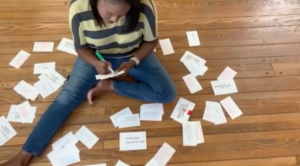 opens in a new window
opens in a new window opens in a new window
opens in a new window
 opens in a new window
opens in a new window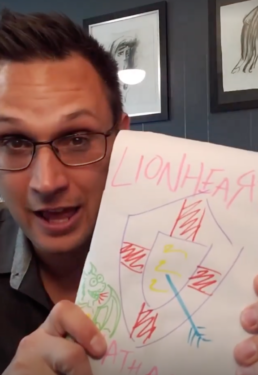
 opens in a new window
opens in a new window
 opens in a new window
opens in a new window
 opens in a new window
opens in a new window
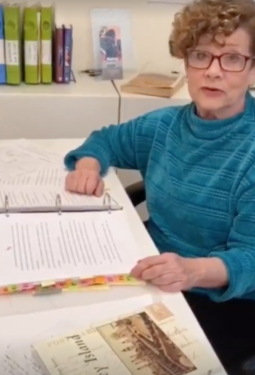 opens in a new window
opens in a new window



